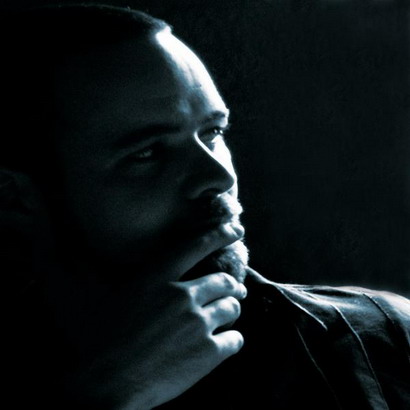James Murray
 |
– Ultimae Records – Last.fm – Myspace |
James Murray is an electro-acoustic sound artist, music producer and multi-instrumentalist.
His productions weave together elements of electronica, downtempo, jazz and dub in emotive explorations of how the organic and electronic interact. Recursive themes draw hi-tech sound design, live instrumentation and lush pastoralism into a personal sonic world where nothing is as it seems.
Previously released on Em:t, Psychonavigation and Part 2 Records, he is now part of the Ultimae roster and works in London as a freelance composer and producer.
Ashoka: Hello James. First of all, we’d like to say thank you that you have decided to answer some questions. Let us start with a question about your history and beginning of your career as a composer and producer. Why did you choose this kind of music?
It’s my pleasure. I started producing electronic music around 1996, before that I had a more traditional relationship with composition, production and performance. I was drawn by the method – computer based production allowed me far more creative control than any approach I’d previously taken. In effect, I didn’t need a band anymore, nor to play all the parts consecutively myself until it sounded like a full ensemble. But it’s more than that – imagination and know-how are really the only natural limits on what you can do with this technology, and that I find very exciting.
Ashoka: Undoubtedly you achieve such great success because some of your tracks were released by Ultimae, and after that the world got your full album WHERE EDGES MEET. How did you become a member of this label? Could you tell us about the circumstances of your joining Ultimae?
I met Sun and Vince about 5 years ago. I think we knew pretty much straight away we wanted to work together, but our musical backgrounds were a little different so it perhaps wasn’t immediately obvious when or how. When compiling OXYCANTA – WINTER BLOOMS, Sun asked for my track NAUTILUS, and not long after I began gathering material for what would eventually become WHERE EDGES MEET. The association with Ultimae has no doubt helped raise my profile, but more than that it’s a pleasure and a privilege to work with such great people.
Ashoka: Has your life changed since you started to be ‘this James Murray’? We think that all downtempo maniacs can recognize you now without any problems, are we right?
Well, recognition is important to every artist, it brings with it a sense of assurance that you’re on the right path. There haven’t really been fundamental changes to my life, but we all like to be appreciated, right?
Ashoka: Which your track/song do you like most and why?
I honestly have no favourites and I’ll tell you why: liking one track more inevitably means liking another less, and I couldn’t release a track I wasn’t 100% happy with. I know it’s a cliché when artists say ‘they’re all my children…’ but there is some truth under that.
Ashoka: We have to ask you about your studio. What do you use?
It’s almost entirely ‘virtual’ as the only hardware I have is on the controller, monitor or recording side. I’m using Ableton now having sequenced and produced previous solo projects (the last album included) in FL Studio. I have the usual range of plugins and effects, with a few oddities thrown in, and there are usually a few acoustic and electric instruments involved, more so I suspect in future projects.
Ashoka: What do you do when you don’t work on music? What are your other interests?
Reading, cooking, spending time with my family. Pretty normal stuff.
Ashoka: The most difficult thing in the music scene is to create your own, interesting and original style which would not only be recognizable, enjoyable but also varied on every album. We think that you have this ability to attract the audience using a lot of different sounds, voices, instruments. How do you do that? What is your secret?
Thank you, I appreciate the observation. If there is a secret it’s simply that I’m obsessive about my music. I won’t stop until I’m satisfied that every element is as completely itself as it can be. I don’t know whether that’s a healthy mentality, but it’s one that I hope results in a fully-realised sound.
Ashoka: The next question we would like to ask is connected with your future. What are your nearest and forward-looking plans? Do you think about creating a new album? Where can we listen and watch your live performances?
Yes, I’ve started work on a second album which is developing well. There are a couple of other projects emerging but it’s early days. I am planning to do many more live shows next year too, so keep an eye out if you’re interested.
Ashoka: What is your own definition of music you create? Do you create it for relaxation, deep thinking, meditation or any other reasons? What is your main ideology and philosophy when you create music?
Music isn’t cluttered with symbols the way language or most representational art is. It doesn’t demand to be interpreted, only to be experienced, and can provide a really direct, immediate interface between our senses and a reality that exists beyond our ‘normal’ perception. For me it’s through music we touch most directly on the universal. As a composer, this is both motivation and reward.
Ashoka: Do you want to start cooperation with other downtempo artists, maybe some from Ultimae? What do you think about it?
There are collaborations with a couple of diffferent artists on the horizon. I’m all for the idea in principle, provided the people are compatible and have something to say collectively that they can’t or won’t by themselves. I suppose it helps if it’s fun too.
Ashoka: In our opinion one of the best track on your album is GAIJIN, can you tell us more about thi track? What the title means? In what circumstances did you make it?
‘GAIJIN’ is a japanese term meaning outsider or foreigner. When I wrote the track I was living in my home city, in my own country, but not really on my own terms. On one level it’s an emotional response to my personal circumstances at that time. But I also wanted to convey a broader sense of not belonging, be that emotionally, socially or culturally. I think we all experience something like that at one time or another. So you’ll hear in the track that the flute tremolos never quite match the overall tempo, some tunings are slightly off, there are awkward intervals and unusual spaces in the mix – all intended to contribute to an atmosphere of dislocation, of things not quite being right.
Ashoka: And when we are talking about the titles, we have to ask about the title of your album WHERE EDGES MEET. Does it have any deeper meaning?
Well, although it’s fundamentally an electronic record, in many ways WHERE EDGES MEET has a very acoustic heart. So two of the edges that meet are the electronic and acoustic sides of my sound, the album itself existing along that interface. I was very interested in blurring that electro/acoustic distinction with this album, if you listen with that in mind you can hear the whole thing as a kind of sensory game. That’s one meaning of the title. There are many other interpretations, of course, some for each listener to discover for themselves, and some are just for me.
Ashoka: Do you like playing live acts? What do you feel when you play? We have read a gossip that you also play as DJ, is it true? If yes what do you play?
I’ve only played a few times now but I love it. It’s a unique buzz. I have compiled a few mixes for radio/ CD recently, but I never DJ live – seems that’s just gossip.
Ashoka: We ask about it all our interlocutors, so we also have to ask you. Do you know anything about Poland (except fact that many of us emigrate to UK) and if yu can say something to your fans in Poland what would it be?
I know far too little – perhaps I should come over, perform, and find out?
Ashoka: Thank you for this interview, so we are waiting for your new productions and wish you all the best
(The interview contains only the original, not changed statements and replies. All answers are authentic statements spoken / written by the interlocutor / interviewed person.)
[17.11.2009]

![Ashoka [Sun, Love, Peace and Chillout...] Ashoka [Sun, Love, Peace and Chillout...]](http://www.ashoka.com.pl/download/cd_covers/digiseeds.jpg)
![Ashoka [Sun, Love, Peace and Chillout...] Ashoka [Sun, Love, Peace and Chillout...]](http://www.ashoka.com.pl/download/cd_covers/granite.jpg)



